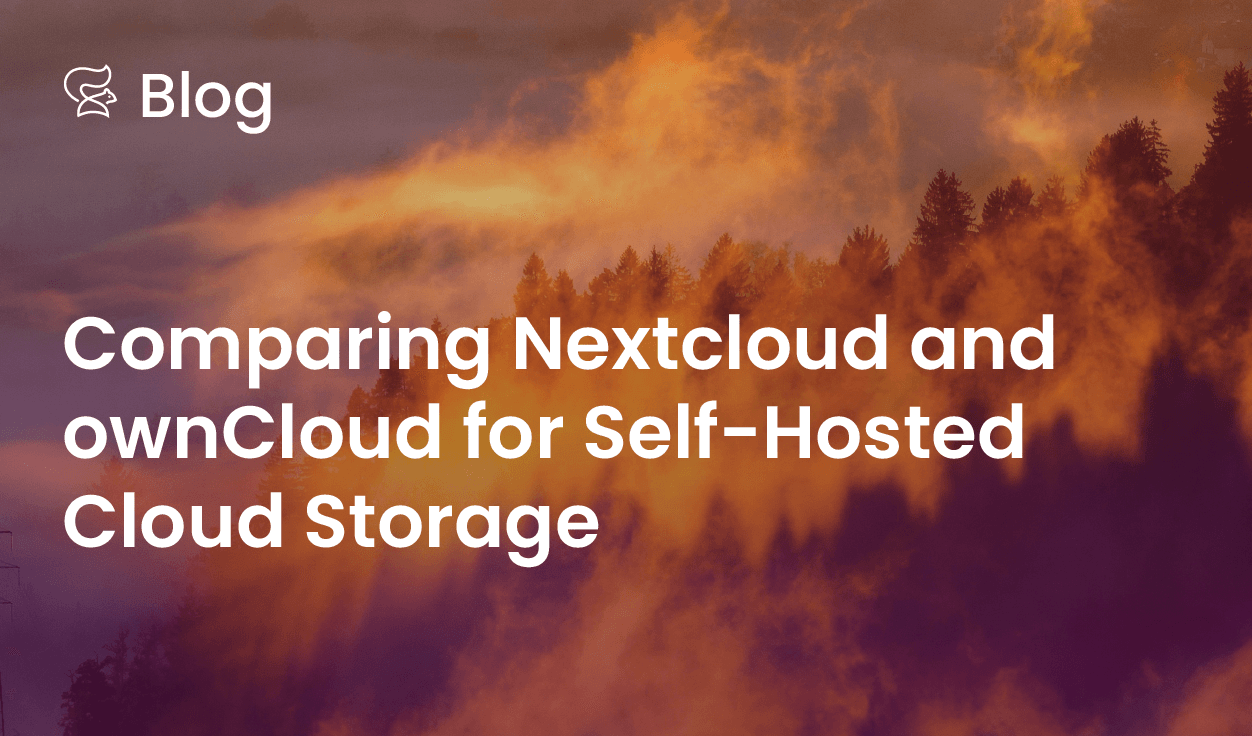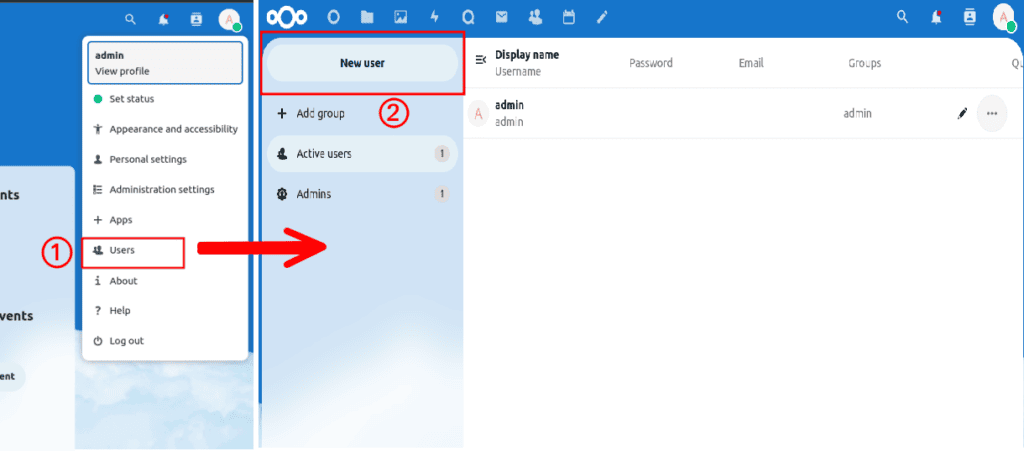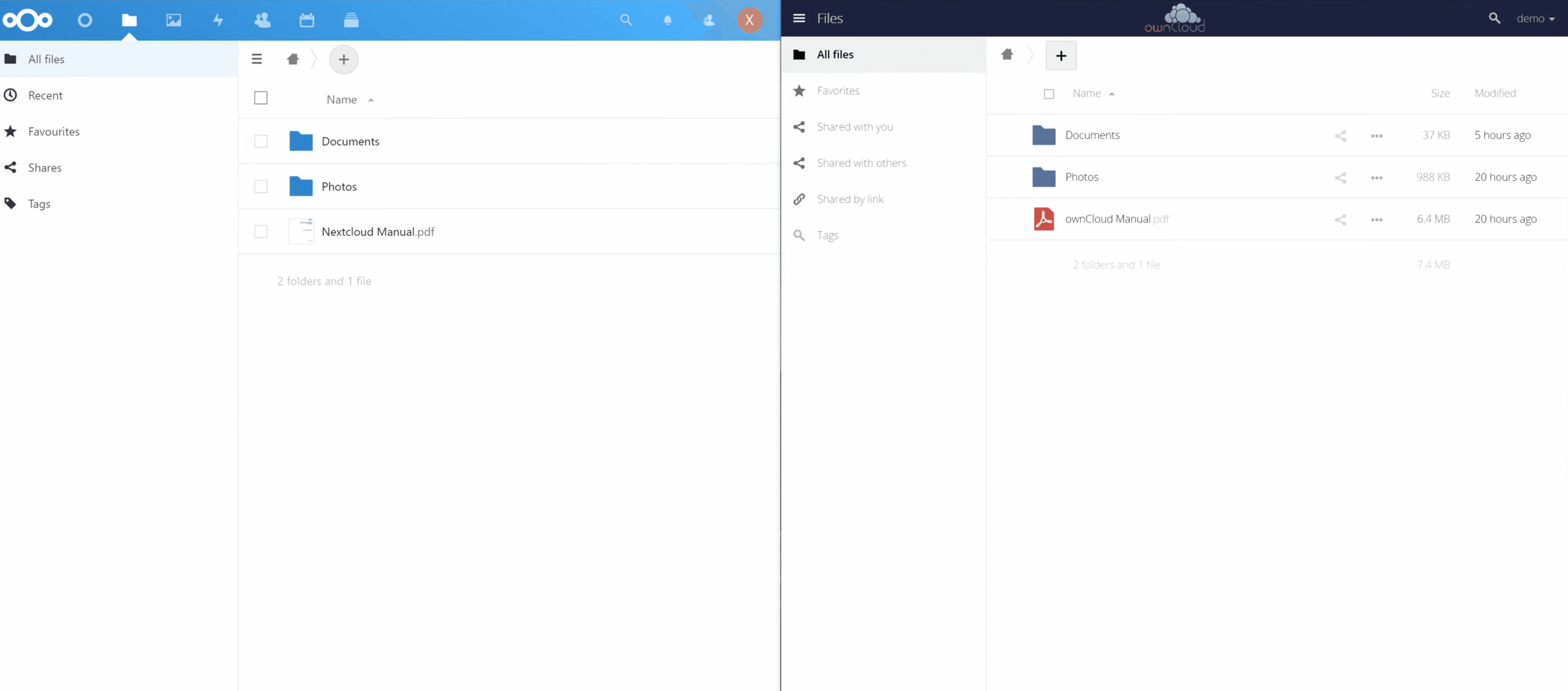A few decades ago, data was in physical form. Whether it was personal photographs or a company’s financial records, all of them were on paper. However, with the changing technological landscape, everything moved from paper to silicon. From our vacation pictures to official financial records, everything went digital and was stored on computers.
And that’s when data storage became critical. How and where to store data became a talking point. While cloud storage solutions have undoubtedly made data storage and accessibility more convenient, they often lack the benefits of self-hosting data, such as full control, privacy, and security.
In this blog post, I am going to talk about two such self-hosted solutions Nextcloud and ownCloud, and how they stack up against each other based on my experience of using the two.
To help you experience it yourself, you can deploy a NextCloud instance and an ownCloud instance in the Acorn sandbox. The sandbox is perfect for evaluating applications as it allows you to run deployments for up to 2 hours, all of this for free. You just need a GitHub account to get started.
So, whether you’re a business looking to streamline data management or an individual seeking to safeguard cherished memories, this blog post will help you choose the right tool for your specific needs.
Try deploying these solutions with Clio, our AI CLI assistant! Let Clio guide you through the complex CLI processes, helping you work faster and more efficiently.
Clio works by running local commands and can help you manage your cloud resources, deploy apps and manage Kubernetes clusters, check the status of your Docker containers, interact with GitHub repos, automation, scripting, secrets management and much more. Try Clio today—where technology meets simplicity.
NextCloud and ownCloud – The Self Hosted Solutions
While Google Drive, iCloud, Dropbox and OneDrive are leading the roost when it comes to hosted storage solutions, the two names that are popular when it comes to self hosted data storage are NextCloud and ownCloud.
Interestingly, both NextCloud and ownCloud started as one project and later separated due to differences in ideologies. While NextCloud was committed to being open source, ownCloud wanted to incorporate licensing. This led to the founders creating NextCloud which is a fork of ownCloud.
Nextcloud vs ownCloud: Similarities
Considering that NextCloud is a fork of ownCloud, there are a lot of similarities between the two. Let us look at some of the common offerings that both NextCloud and ownCloud have to offer.
Self-hosted Solutions
Both of these solutions offer self hosted options and can be deployed on your servers without opting for any enterprise services that each of them has to offer. You can deploy them on your bare metal servers or opt for cloud services of your choice.
File Syncing
NextCloud and ownCloud started as a file storage and synchronization service and continue to excel at that. Both of them allow you to upload, share, and manage your data providing you complete control over it. They even have synchronization features that allow your data to be automatically synced between your local storage and personal cloud.
User Management
Whether you’re a single person using the service or have a team, both NextCloud and ownCloud allow you to create and manage users. Both provide you with fine-grained access control options along with user and group management capabilities.
Collaboration
Apart from being file-sharing and storage solutions, both NextCloud and ownCloud have evolved over the years to become collaboration platforms. Both these allow users and teams to share and collaborate on documents in near real-time from anywhere and at any time. This helps teams get work done faster.
Mobile Apps & Cross-Platform Support
Both NextCloud and ownCloud provide desktop clients for different operating systems that allow users to access these services from their devices. In addition to that, both of them have native mobile apps for iOS and Android that enable users to use these services from their mobile devices.
User Interface
Having used both NextCloud and ownCloud, I can safely say that both of them offer a very similar user interface. There might be subtle differences under the hood, but both of them offer a similar user experience to perform routine tasks.
To learn more, check out the detailed features offered by NextCloud and ownCloud and see what fits your bill.
Nextcloud vs ownCloud: Differences
While there are stark similarities between NextCloud and ownCloud, there are a few differences between the two.
Licensing
One of the major differences between NextCloud and ownCloud is their licensing model. While NextCloud is completely open source and uses an AGPLv3 license for both its community and enterprise offerings, ownCloud offers the community edition under the AGPLv3 license while its enterprise edition comes under its own commercial license.
Additional Features
While both of them have a similar set of features, ownCloud provides a lot of its features only in the enterprise edition. Some features like automated workflows, advanced file tagging, and extra primary and secondary storage integrations are offered only as part of the enterprise edition. Read more about the additional features offered by ownCloud. Further, NextCloud comes with additional features like NextCloud talk which is their own audio/video meeting service.
Support Plans
Looking at both these services from an enterprise perspective, they come with different support plans. Both of them have different support plans starting from basic to enterprise and have varied pricing models. While NextCloud is completely open source, its basic support plan starts at 37.49€ per user/year for up to 100 users. On the other hand, ownCloud’s basic support plan starts at 48€ per user/year.
Read more about NextCloud pricing plans and ownCloud pricing plans and see what fits your bill.
To sum it up, here are the differences between the two:
| Parameter | NextCloud | ownCloud |
|---|---|---|
| Licensing | Both enterprise and community editions come under the AGPLv3 license | The community edition is under the AGPLv3 license, but the enterprise edition comes with a commercial license. |
| Extra Features | Both editions have similar features and the premium offering gets added support. | Premium users get access to certain exclusive features that are missing in the community edition. |
| Support Plans | The basic support plan starts at 37.49€ per user/year for up to 100 user | The basic support plan starts at 48€ per user/year for up to 100 user |
NextCloud vs ownCloud – which one do you choose?
Now that you’ve seen the similarities and differences between both the offerings, it might be easier for you to pick one. However, with both these offerings evolving continuously, I suggest referring to their documentation for the latest set of features.
Having said that, at the time of writing this post, I tried both NextCloud and ownCloud, and here are my observations:
- Setting up and installing NextCloud is simpler than ownCloud since ownCloud requires additional configurations for domain names. The one-click all-in-one installation is a breeze and one can start using NextCloud in no time. I tried it on my Raspberry Pi and was able to get it up and running in no time.
- NextCloud has more features than ownCloud with the likes of file collaboration and meetings while ownCloud is still focused on file syncing as its core feature. Many of the features are available out of the box in NextCloud while you need to install them from the app store in case of ownCloud.
- Lastly, NextCloud is completely open source and the community is quite active too. There are a lot of community-developed integrations that provide you with more options to extend the capabilities of NextCloud.
So whether I have to set it up on my home lab as an individual or deploy it on my on-prem servers as an enterprise, or if I want to run it in the cloud on Acorn, I’d choose Nextcloud for the features it provides and ease of deployment.
Unlock your DevOps potential with this sample app by trying out Clio, our AI CLI assistant! Let Clio guide you through the complex evaluation and CLI processes, helping you work faster and more efficiently.
Clio works by running local commands and can help you efficiently manage your AWS, Azure, GCP cloud resources, deploy apps and manage Kubernetes clusters, check the status of your Docker containers, interact with your GitHub repos, and much more.
Check out the full run-down on Clio here or try Clio for yourself today—where technology meets simplicity.
Summary
To sum it up, NextCloud and ownCloud are great self hosted solutions out there. Both of them provide a feature-rich offering that allows you to manage your data and collaborate while having everything under your control. I listed the similarities and differences in this blog post, however, it’s important to remember that the choice between Nextcloud and ownCloud ultimately depends on your specific needs and preferences.
To find your ideal fit, it’s encouraged to take a hands-on approach. You can try our Nextcloud and ownCloud Acorn instances for free, exploring their features and functionalities in real-world scenarios.



